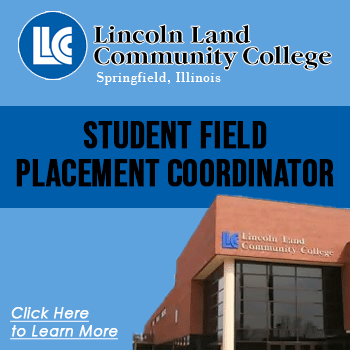This job has Expired

Assistant Professor, Integrative Organismal Biology of Invertebrates
Job Description
INTRODUCTION
The Department of Ecology and Evolutionary Biology (EEB) at the University of Connecticut (UConn) is pleased to invite applications for a tenure-track faculty position in Integrative Organismal Biology of Invertebrates at the Assistant Professor level. The Department seeks a research scientist who applies innovative approaches and an understanding of organisms as integrated systems to achieve novel insights into fundamental questions in evolution, systematics, conservation, and/or ecology. Examples of possible areas include, but are not limited to, biodiversity discovery at the genomic and organismal levels; evolutionary processes shaping diversity within and across lineages; organismal morphology, function, physiology, and behavior in a comparative context; and species interactions, including parasitism.
This position complements Departmental strengths in ecology, evolution, systematics, organismal biology, and conservation biology. The Department offers a highly collaborative environment at a leading public research university that is committed to fostering a diverse and inclusive academic community. More information about the Department can be found at https://www.eeb.uconn.edu . EEB’s Biodiversity Research Collections (https://biodiversity.uconn.edu ) comprise outstanding collections of invertebrates, vertebrates, and plants. Departmental foci are complemented by faculty in intersecting departments, including Marine Sciences; Molecular and Cell Biology; Physiology and Neurobiology; Natural Resources and the Environment; Anthropology; and Earth Sciences, as well as the Institute of the Environment (https://instituteofenvironment.uconn.edu ).
The successful candidate will be expected to: (1) supervise an independent research program that will attract extramural funding, provide research training for graduate and undergraduate students, and offer professional service to the Department and University; (2) use effective, evidence-based methods to teach at the undergraduate and graduate levels, including an organismal biodiversity course focused on invertebrates (e.g., invertebrate zoology, entomology, or parasitology); (3) mentor students in research, outreach, and professional development; and (4) broaden participation of members of underrepresented groups, engage diverse groups through research, teaching, and public engagement, and exhibit skill in using pedagogical techniques designed to meet the needs of individuals with diverse backgrounds, learning styles, and intellectual interests.
Founded in 1881, UConn is a Land Grant and Sea Grant institution and member of the Space Grant Consortium. It is the state’s flagship institution of higher education and includes a main campus in Storrs, CT, four regional campuses throughout the state, and 13 Schools and Colleges, including a Law School in Hartford, and Medical and Dental Schools at the UConn Health campus in Farmington. The University has approximately 10,000 faculty and staff and 32,000 students, including nearly 24,000 undergraduates and over 8,000 graduate and professional students. UConn is a Carnegie Foundation R1 (highest research activity) institution, among the top 25 public universities in the nation. Through research, teaching, service, and outreach, UConn embraces diversity and cultivates leadership, integrity, and engaged citizenship in its students, faculty, staff, and alumni. UConn promotes the health and well-being of citizens by enhancing the social, economic, cultural, and natural environments of the state and beyond. The University serves as a beacon of academic and research excellence as well as a center for innovation and social service to communities. UConn is a leader in many scholarly, research, and innovation areas. Today, the path forward includes exciting opportunities and notable challenges. Record numbers of undergraduate applications and support for student success have enabled the University to become extraordinarily selective.
MINIMUM QUALIFICATIONS
- A Ph.D. or equivalent in ecology and evolutionary biology or a related field by the time of appointment. Equivalent foreign degrees are acceptable.
- Two peer-reviewed publications in invertebrate evolution, systematics, conservation, or ecology.
- Ability to teach an organismal biodiversity course focused on invertebrates (e.g., invertebrate zoology, parasitology, or entomology).
- Demonstrated understanding of barriers to equitable outcomes in STEM fields and a commitment to promote diversity and inclusion through research, teaching, and/or public engagement, as evidenced by past actions, lived experience, or a detailed plan for future work.
PREFERRED QUALIFICATIONS
- Potential to establish an internationally recognized research program that makes fundamental advances in integrative and organismal invertebrate biology.
- Multidimensional knowledge of a focal invertebrate lineage that motivates novel questions and discoveries of broader relevance in ecology and evolutionary biology.
- Research program that complements the Department’s strengths.
- Strong record of extramural funding (e.g., fellowships or grants) relative to career stage.
- Evidence of or potential for excellence in teaching and mentoring.
- Relevant postdoctoral experience.
- A sustained history of fostering and supporting diversity, inclusion, and equity, and a plan to do so in the EEB Department, University, and/or biology-related professions.
APPOINTMENT TERMS
This is a full-time, 9-month, tenure-track position with an anticipated start date of August 23, 2023. The successful candidate’s academic appointment will be at the Storrs campus. Salary will be commensurate with qualifications and experience.
TERMS AND CONDITIONS OF EMPLOYMENT
Employment of the successful candidate is contingent upon the successful completion of a pre-employment criminal background check.
TO APPLY
Please apply online to Academic Jobs Online https://academicjobsonline.org/ajo/jobs/23043 and submit the following application materials:
- A cover letter,
- Curriculum vitae,
- Research and scholarship statement (3 pages maximum; include research accomplishments, short-term (next 5 years) and long-term plans, and experience in grant proposal development. This statement should describe the big picture implications of your research, how your program may move your field forward, and the innovative concepts that will form the basis of your academic career);
- Teaching statement (2 pages maximum; include teaching philosophy, experience, approaches to effective learning, and interests in teaching particular courses, as well as mentorship of undergraduate and graduate students);
- Commitment to diversity statement (2 pages maximum; Describe your overarching philosophy as well as planned activities to advance diversity, equity, and inclusion and meet the needs of diverse learning styles at UConn. This statement might also include activities you have engaged in to enhance diversity and broaden participation in science (e.g., race, gender, sexuality, ability) through service, instruction, or research);
- Names and contact information for 3 letters of reference. The search committee will request letters directly from these contacts after the first-round review of applications.
To ensure full consideration, applications should be received by November 1, 2022.
For questions about the application system, email Nick Boston (nicholas.boston@uconn.edu ), and for questions directly related to the search, email the search committee chair, Dr. Andrew Bush (andrew.bush@uconn.edu ).
At the University of Connecticut, our commitment to excellence is complemented by our commitment to building a culturally diverse community.
This job will be filled subject to budgetary approval.
All employees are subject to adherence to the State Code of Ethics which may be found at http://www.ct.gov/ethics/site/default.asp .
The University of Connecticut is committed to building and supporting a multicultural and diverse community of students, faculty and staff. The diversity of students, faculty and staff continues to increase, as does the number of honors students, valedictorians and salutatorians who consistently make UConn their top choice. More than 100 research centers and institutes serve the University’s teaching, research, diversity, and outreach missions, leading to UConn’s ranking as one of the nation’s top research universities. UConn’s faculty and staff are the critical link to fostering and expanding our vibrant, multicultural and diverse University community. As an Affirmative Action/Equal Employment Opportunity employer, UConn encourages applications from women, veterans, people with disabilities and members of traditionally underrepresented populations.
*Please mention you saw this ad on AcademicJobs.*




